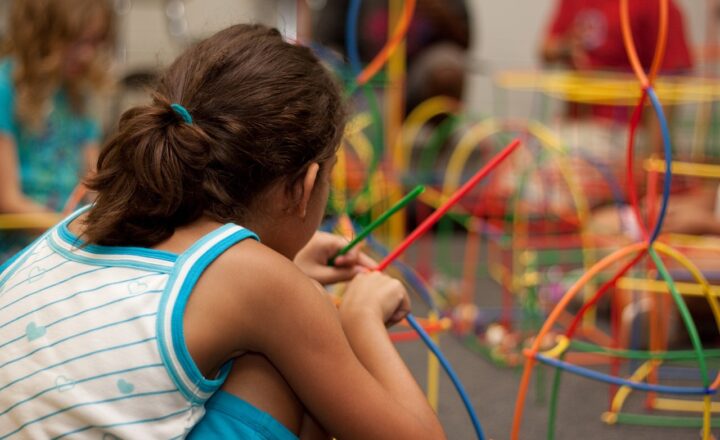
Graduation marks an important milestone, but academic knowledge alone isn’t enough for success in life. Essential life skills help teens navigate adulthood with confidence, resilience, and independence. This article explores ten crucial skills every teenager should learn before they graduate, setting a solid foundation for their future.
1. Financial Literacy
Financial literacy empowers teens to manage their money responsibly. From understanding savings and budgeting to learning about credit and debt, mastering these basics is vital for financial independence.
- Budgeting: Learning to track income and expenses, distinguishing needs from wants.
- Savings: Setting aside a portion of income for future goals or emergencies.
- Credit Awareness: Understanding how credit works and its impact on financial stability.
2. Time Management
Time management is crucial for balancing responsibilities, especially as teens transition into adulthood. Developing effective time management skills helps reduce stress and increase productivity.
Tips for Managing Time:
- Use planners or digital calendars to organize tasks.
- Set priorities and break down larger tasks into manageable steps.
- Avoid multitasking to improve focus and efficiency.
3. Effective Communication
Being able to communicate clearly is essential in both personal and professional life. Teens should learn how to express their ideas confidently and listen actively to others.
Aspects of Effective Communication:
- Active Listening: Focused listening to understand the speaker’s message fully.
- Non-Verbal Cues: Using body language and facial expressions to convey messages.
- Conflict Resolution: Learning to handle disagreements constructively.
4. Basic Cooking Skills
Knowing how to prepare nutritious meals is essential for a healthy lifestyle. Teens who can cook are more likely to make healthier choices and manage their diet independently.
- Meal Preparation: Learning basic recipes and techniques for balanced meals.
- Food Safety: Understanding hygiene and proper food handling.
- Grocery Shopping: Choosing ingredients and budgeting for meals.
5. Critical Thinking
Critical thinking skills enable teens to analyze information and make well-informed decisions. These skills are valuable in all aspects of life, from academics to everyday problem-solving.
Steps to Develop Critical Thinking:
- Ask questions and seek evidence before drawing conclusions.
- Consider multiple perspectives on an issue.
- Reflect on the implications of decisions and actions.
6. Basic Home Maintenance
Basic home maintenance skills, like repairing a leaky faucet or changing a light bulb, help teens become more self-sufficient and reduce their reliance on others for simple tasks.
Examples of Essential Home Maintenance Skills:
- Plumbing Basics: Fixing small leaks or unclogging drains.
- Electrical Safety: Replacing light bulbs or resetting breakers.
- Cleaning Techniques: Understanding proper cleaning methods for different surfaces.
7. Stress Management
Learning to manage stress is crucial for mental health. Teens equipped with coping strategies are better prepared to handle the pressures of adulthood, from career challenges to personal relationships.
- Mindfulness: Practicing meditation or deep breathing exercises.
- Physical Activity: Using exercise as a natural stress reliever.
- Journaling: Writing down thoughts to process emotions effectively.
8. Digital Literacy
In an increasingly digital world, knowing how to navigate online platforms, protect personal information, and avoid misinformation is essential.
Key Areas of Digital Literacy:
- Online Safety: Understanding privacy settings and safe browsing habits.
- Information Verification: Identifying credible sources and avoiding fake news.
- Basic Coding: Gaining a foundational understanding of programming or website management.
9. First Aid and Safety
Knowing basic first aid can make a significant difference in emergencies. Teens should learn how to administer CPR, handle minor injuries, and understand when to seek medical assistance.
Basic First Aid Skills:
- CPR and rescue breathing techniques.
- Wound cleaning and bandaging.
- Responding to common injuries, like sprains or burns.
10. Self-Discipline
Self-discipline is the foundation of success. It helps teens set goals, resist impulsive actions, and maintain consistency in their efforts toward personal growth.
- Goal Setting: Establishing short- and long-term goals for personal and professional life.
- Consistency: Building habits that contribute to long-term success.
- Impulse Control: Learning to delay gratification for greater rewards.
Conclusion
Preparing teens for life beyond school requires teaching them a balance of practical and interpersonal skills. From managing finances to cultivating self-discipline, these skills enable teens to approach adulthood with confidence and capability. Parents, educators, and mentors play a crucial role in imparting these life skills, ensuring that each graduate steps into the world ready to succeed.







